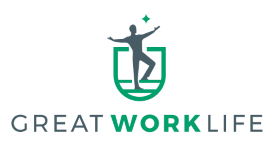Good decision-making is arguably the most crucial skill of all. Do you have a track record of making good decisions, or is it hit and miss?
This article will examine the best scientific research and thought leadership on decision-making and package it all up in an easy-to-use framework. We even have a printable eBook/PDF for you to download.
The sum of your decisions impact who you are & where you are in life.
Life is an endless stream of decisions, from the mundane “what to have for breakfast” to the critically important “whom to marry.” But how can you make good decisions?
We will first cover a few core facts about decision-making so you understand how humans function, and then we will move on to an actionable checklist to promote better decision-making.

1. Accept That Humans Are Not Great Decision Makers
Consider one of the most crucial decisions: who shall we marry? It turns out that choosing a life partner is a tough decision to get right. According to the CDC’s National Center for Health Statistics, 42% of all marriages in the USA result in divorce. This means that only 58% of the time do we make a good choice in our most important decision. Even though we have no limit on the time to “test drive,” evaluate, and assess a future life partner, we still fail 42% of the time.
It can be argued that people change over time, and therefore, partners grow apart, meaning the outcome is unforeseeable. Still, the counter-argument is that the criteria upon which the decision was made were not as robust as they could be.
In either case, we humans probably get any decision correct 58% of the time.
2. Understand The Way You Make Decisions
One of the finest books on the thought process and how we make decisions, Thinking, Fast and Slow (2011), by Daniel Kahneman, a behavioral economist, introduces a framework of two “systems” of cognition.
- System 1 thought operates automatically and quickly, with little effort and no sense of voluntary control.
- System 2 thought allocates attention to the effortful mental activities that demand it, including complex computations. The operations of System 2 are often associated with the subjective experience of agency, choice, and concentration”.
So, humans have rapid instinctive decision-making (System 1) and thoughtful, deliberative decision-making (System 2). Interestingly, Kahneman notes that while System 1 thinking may be fast and effortless, it often jumps to the wrong conclusions, relies on hunches and biases, and may be overconfident.
Alternatively, System 2 thinking is usually more balanced, acquiring greater information and using more reliable decision rules, but it requires increased attention and effort. In essence, making the most of our decision-making capacity and maximizing our good decision percentage means we need to understand and manage when we are thinking fast (minor decisions) versus when we are thinking slow (significant decisions).
3. Reflect Upon Your Previous Decisions
Be honest with yourself. Do you generally make the right decisions? No single person on this planet makes the right decisions 100% of the time. If you get it right 60% of the time, you are doing well. Anything higher, especially with critical decisions, will mean you can look back with pride.
Consider these big life decisions; did you get them right?
- Have you been happily married or with your life partner for over eight years? [Yes / No]
- Are you happy with your career and education choices? [Yes / No]
- Do you earn enough so that you are living comfortably? [Yes / No]
- Do you live in a neighborhood you like and have a good relationship with your neighbors? [Yes / No]
- Do you have a good relationship with your children? [Yes / No]
- Do you have three or four close friends with whom you have a meaningful relationship? [Yes / No]
- Have you avoided suffering from self-inflicted health issues like stress, obesity, alcohol, or drug addiction? [Yes / No]
You are an excellent decision-maker if you can say yes to all the above questions.
Let’s move on to our checklist for maximizing your decision-making performance.

"When You Stop Learning, You Stop Living" SkillShare Makes Learning Easy. Skillshare Is Our #1 Rated Learning Platform With Great Lessons On:★★★★★ Creating: Photography, Film-Making, Music, Graphic Design & Coding ★★★★★ Building: Leadership, Communication, Entrepreneurship & Marketing ★★★★★ Thriving: Personal & Professional Development, Productivity, Time Management "Skillshare is like Netflix for learning. I take a course every time I need a new skill. With over 30,000 courses to choose from, I always have something to learn." Barry D. Moore - Founder: GreatWorkLife.com |
Section 2: The M.I.N.C.I.N.G-C.R.I.M.E.S Framework For Decision-Making
4. Why Do You Need To Make This Decision?
You need to clearly understand your motivation for a decision to recognize its importance. The more important a decision is, the more time you will need to dedicate to getting that decision right.
We look to Maslow’s excellent research to understand human needs and motivations.
The motivational model above helps us understand why we are motivated to change and strive for more. The deficiency needs are mostly our primal needs; these are the things we need to attain to have a core of contentment and happiness. You need to get these things right and make solid decisions to achieve a foundation for personal growth (higher up the pyramid)
Physiological needs are concerned with the basic ability to eat, drink, and have a place to rest. The homeless and destitute have not fulfilled these needs.
Safety needs refer to having a home, especially in a place that is secure where you can live without fear. If you live in a high-crime neighborhood or a war zone, you are not meeting this need.
Belonging and love needs are critical to mental health and wellbeing. Humans are social animals and can experience severe unhappiness when they do not feel needed, loved, or able to love others. Broken relationships or marriages, lack of close friends, and no sense of belonging are critical motivational factors that lead to serious decisions.
Esteem refers to the subtleties of self-esteem, achievement, and having the respect of others. It is the platform upon which you build out who you really are. Do you work hard and smart? Do people respect you for who you are? Are you honest? Do you take responsibility for your actions?
The top levels of the pyramid are the growth needs. Now, you have a secure foundation to self-actualize yourself—developing independence of thought, tolerance, self-confidence, and engaging in intellectual and artistic endeavors. The summit of the pyramid, transcendence, refers to moving from the focus on self to true altruism, helping others without reward.
5. How Important Is The Decision To You?
Although every level of Maslow’s pyramid will seem critical to you depending on your life stage, the core deficiency needs are where most people face a battle. Work or career, love and relationships, and personal security are not guaranteed in any country.
Think about where on the pyramid your decision lies; this will help you decide how much effort and time you need to make the decision and how much commitment you need to implement it.
The importance you place on a decision will focus you on getting it right. Many people will put more thought into the car they purchase than the partner they choose. People will spend more time comparing and choosing the TV they want to buy rather than what they eat for breakfast. What food you eat is ultimately a much more important decision for long-term health and wellbeing than the type of TV you have.
6. Understand The Cost of No Decision
Jordan Peterson is a man I respect greatly, a fully self-actualized person. His book 12 Rules for Life (2018) is an instant classic for thoughtful decision-makers. Watch the video below to let him explain the cost of no-decision.
7. Contemplate the Chain of Events a Decision Unleashes
There is always a chain of events associated with everything that we do. The bigger the decision, the more life-changing the chain of events will be. If you are in an abusive or disrespectful relationship, making a clear choice to leave will have lasting consequences. It will impact your mental health and self-esteem. It will affect your living arrangements, finances, and even your circle of friends. Some of these events will be positive or negative. While your finances may take a hit, your self-esteem may get a boost. Your circle of friends may reduce, but your freedom and independence to make new relationships will increase.
Remember, in every chain of events, you will also have many future decision points upon which to act to impact your life positively. Map out the chain of events to help you feel more comfortable with the decision.
8. Begin Gathering Information
Turning information into knowledge is the key here. Are you looking to move out of a bad neighborhood or emigrate to a country with better economic opportunities? You need to start building a picture of what you are looking for and gather information on potential destinations. Spend the right amount of time on this, and you will make more informed decisions. Spend time in the neighborhood you are looking to move to, and research not only the people and the local culture but also the economic climate and the schools. If you move, it should be to an area experiencing growth, not declining. The chain of events of moving to a declining neighborhood can be catastrophic for your long-term finances and work opportunities.

9. Do the Newspaper Test
A popular and extremely simple technique for cross-checking if any decisions you are considering meet basic community values is the newspaper test. Imagine you own a gardening business. You are looking to hire a new employee, and there is a female applicant. If you decide not to hire her because you believe she is not as physically strong as a male applicant, how would that story play in the local newspaper? The headline might read “Local Gardening Firm Discriminates Against Weaker Women,” this could potentially ruin your business and reputation.
 Audiobooks Are Food for the Mind Inspiration, Education & Relaxation Have you discovered the joy of listening?★★★★★ Audible: Review Winner - Best for Price, Library Size & Original Content. ★★★★★ Blinkist: Review Winner - Best Audiobook Summary Service. ★★★★ Audiobooks.com: Best For Unlimited Audiobook Listening. "As a 10-year member of Audible, I have a library of 300+ audiobooks. The best thing is, with a few clicks, I can return any book within 12-months. I also subscribe to Blinkist; with 5,000 15-minute audio-summaries, I can consume knowledge and learn new concepts fast." Barry D. Moore - Founder: GreatWorkLife.com |
10. Consider the Greater Good For You & Others
Consideration of the greater good can benefit many decisions. If you have a moral compass and compassion for others, this will be a key part of your decision-making.
Consider something as simple as buying bottled water. Buying water in disposable plastic bottles is convenient and cheap from your perspective. But from the perspective of the greater good, this is killing our planet. As a family, we have cut our use of plastics by 90% for the greater good of the planet and our future generations. We drive a hybrid car, minimize long-haul flights, and use a search engine that plants trees with advertising proceeds. Every little action helps. If we all considered the greater good, the world would be a better place.
If you need to make a decision that affects others, for example, downsizing a business, consider what decisions would be the best for most people, or at least which would negatively impact the fewest people.
11. Evaluate Your Options & Consider Radical Choices
It is natural for people to think incrementally rather than radically. Imagine, for example, you have been living with your partner for five years, but you realize it is an unhealthy relationship for both of you; not only that, you are not enjoying your work. You have no children, and you have saved some money. You know you need to make a change. Let’s look at the possibilities:
Incremental Choices
- Split with your partner but remain living together until you find a new job.
- Stay with your partner until you find another job and apartment, then split up.
- Split with your partner, find a new apartment, then change jobs.
Radical Choices
- Split up with your partner, quit your job, and go backpacking for a year.
- Find a suitable job in a foreign country and launch a new chapter in your life.
Which options sound more appealing? It depends on the type of person you are. Do you value security over adventure or familiarity over new experiences? Whatever you prefer, don’t forget to at least consider radical decision choices.
12. Understand The Risks & Rewards
No decision in life is risk-free, and we are also quite poor at predicting the future consequences of our actions. Essentially, it is about making the most informed choice with the information we have.
Example: Decisions Risks vs. Rewards for a Job Change
| Risks | Rewards |
| Potential conflicts with the new team | 15% increase in salary |
| Leaving comfort zone | More opportunities with a new company |
| Have to learn new skills | Broaden industry knowledge |
| Leaving behind friends & colleagues | A fresh start with a new company |
| Longer commute to the office | Remote working possibilities |
Example Decision Pros & Cons for a Partner
| Pro’s | Cons |
| Share the same interests. | Unsure about trustworthiness |
| Compatible sense of humor | Does not want to buy a house |
| Physically attractive | Does not want children |
| Sexually Compatible | Verbally aggressive when drunk |
| Caring (when sober) | Unambitious |
Looking at the example tables above, ask yourself, what would you do?
13. Work With an Impartial, Trusted Person or Expert
Depending on the type of decision you need to make, it may be worthwhile to seek independent advice. There are many sources of advice you can utilize.
| Issue | Advisor |
| Personal Stress or Anxiety | Psychologist / Psychiatrist |
| Relationship Advice | Close Personal Friend |
| Career Advice / Job Seeking | Business Coach |
| Workplace Advice | Mentor or Business Ethics Team |
| Housing / Relocation | Realtor |
| Investment Advice | Financial Planner or Robo Advisor |
If you choose to share personal relationship information with a close friend, you need to be sure they are trustworthy and set the ground rules that they should help you make your own decision, not tell you what to do. You need to own your decision 100% and not blame others if it does not work out how you want it.
14. Is Your Decision Aligned to Your Values
Another test to try is to see if your decision choices match up with your personal values. Now, I hear you say, “I don’t really have any specific values, just that of society.” If that is truly the case, then I would urge you to spend time understanding what you value in life. It will make your decision-making a more seamless process.
What do you value in yourself and others?
| Accountability | Honesty |
| Equality | Friendship |
| Environmental Responsibility | Intelligence |
| Creativity | Vegetarianism / Veganism |
| Community | Religion / Spirituality |
| Dependability | Moderation |
| Discipline | Risk-Taking |
| Enthusiasm | Independence |
| Fairness | Stability |
| Happiness & Harmony | Status |
| Wealth | Wisdom |
Use this list to check off what is important to you. The people in your circle of relationships should also roughly correspond to what you value to achieve harmony.
15. Apply Both Sides of Your Brain. Emotion & Logic
We humans are both logical and emotional animals. Yet, in some areas of our lives, we let emotion control our decision-making. For example, when it comes to choosing a partner or friends, we are often, if not entirely, driven by emotion. Do fear of being alone, physical and sexual attraction, passion, and love sound familiar?
Many in society also believe that if a person makes logical relationship decisions, they are somehow cold and calculating. But this could not be further from the truth. Imagine that your circle of friends from school are taking and selling class A drugs. You may need to make the logical decision to separate yourself from them and seek new pastures to avoid the inevitable negative chain of events in the future.
Any decision you make should be logical but also sit well with you emotionally. Buying a cheap Korean car might be logically a wise financial decision, but the thought of driving that car around town and being seen in it might drive you to purchase an Audi. If you over-extend your finances to buy the Audi, you may be letting emotion and your need for prestige or respect overrule your logical decision-making.
Avoid The Bad Decision Traps – Do Not Make Decisions When Angry
Daniel Fessler and colleagues from the University of California, Los Angeles, induced emotional anger in clinical subjects by getting them to write an essay recalling an experience that made them see red. They then got them to play a game in which they were presented with a simple choice: take a guaranteed $15 payout or gamble for more with the prospect of gaining nothing. The researchers found that men, not women, gambled more when angry, thus taking unnecessary risks and making bad decisions. (Source: Organizational Behavior and Human Decision Processes).
Love & Rose Tinted Glasses
Love is such a powerful emotion, yet it is hard to define, and some even deny its existence. Love can be blinding, and it can also enable you to convince yourself to stay in an abusive relationship.
Fear – Do Not Let Fear Sway Your Decision
Fear comes in many forms: fear of the consequences of a decision, fear of loneliness, or even fear of other people’s opinions of you. A term in the stock market that even causes traders to make poor decisions is fear of missing out (FOMO). FOMO induces market traders to make decisions that appear completely against their defined trading rules because they fear missing out on a profit. Marketers, realtors, and salespeople across the globe use the FOMO principle to induce emotions in the customer to make quicker buying decisions. Following on from FOMO, we have…
Stress – Do Not Let External Time Pressures Sway Your Decision
Another commonly used tactic by marketers is using time pressure to encourage emotional decision-making. Have you ever been to a website landing page that suggests you have only 60 minutes to buy this product at this special discounted price? It is mostly a hoax to force you into a snap emotional decision.
However you choose to make your decisions, always consider both sides of your brain, logic, and emotions. Which one wins out is entirely up to you.

16. Sleep On It
The age-old advice to sleep on an important decision before deciding on a course of action is not simply a cliche but a proven scientific fact. LiveScience.com elaborates on an experiment at the University of Amsterdam on 352 participants. Split into control groups, those who were asked to predict the outcome of football matches using subconscious thought outperformed those using conscious thought.
“If you’re an expert and you had extra time to think about your decision in the area of your expertise (conscious thinker) or had to make a quick decision, you made worse decisions than those who were unconscious thinkers. The researcher hypothesized that conscious thought could lead to poor weighting in decision-making — the more you think about something, the more your biases interfere with good decision-making. Unconscious thinkers in this experiment appear to weigh the relative importance of diagnostic information more accurately than conscious thinkers (Source LiveScience.com).
So definitely sleep on any important decision and let your subconscious guide you the following day.
Section 3: Decision Action & Implementation
Decision Action Plan
Now that you have slept on the problem, you wake up with a clear mind and know which decision to make. It would be best if you had an action plan.
Decision Plan Template
| What Is My Decision? | ______________________ |
| Why have I made this decision? | ______________________ |
| Who will help me implement it? | ______________________ |
| Who is affected? | ______________________ |
| How can I minimize the impact on others? | ______________________ |
| What are the steps involved? | ______________________ |
| When will I begin the actions? | ______________________ |
| When will the actions be completed? | ______________________ |
| Post-plan review. Did it work out as expected? | ______________________ |
17. Make Your Decision & Stick With It
Now, it is time to execute the plan. You have been through the process, considering your motivations, needs, values, and the possible chain of events. You have gathered information and processed it into knowledge. You have considered the greater good, let your emotions and logic have a vote, and finally slept on the decision to let the power of your unconscious mind finalize the process.
More you cannot do!
Go forth and implement your plan; may the force be with you.
How To Make Good Decisions Workbook – PDF / eBook Download


